Core Faculty
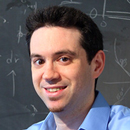
Daniel Abrams (Co-Director)
Bette and Neison Harris Chair in Teaching Excellence
Professor of Engineering Sciences and Applied Mathematics
McCormick School of Engineering and Applied Science
Professor of Physics and Astronomy (by courtesy)
Professor Abram's lab is focused on the study of complex systems—where the whole is greater than the sum of its parts. We use the tools of nonlinear dynamics to create and analyze tractable mathematical models for a wide range of phenomena. Our goal is to gain and share insight into the world through the application of mathematics.
Daniel Abrams Named NICO Codirector - McCormick Engineering News
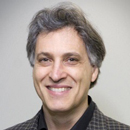
Brian Uzzi (Co-Director)
Richard L. Thomas Professor of Leadership and Organizational Change
Kellogg School of Management
Professor of Sociology (by courtesy)
Professor of Industrial Engineering and Management Science (by courtesy)
Professor Uzzi's research uses social network science and computational methods to explain outstanding human achievement, focusing on the role of artificial intellegence in mind and machine partnerships. In addition to co-directing NICO, he is a Co-Director of the Ryan Institute on Complexity at the Kellogg School of Management.
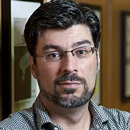
Luis Amaral
Professor of Engineering Sciences and Applied Mathematics
Professor of Medicine (by courtesy)
Professor of Physics & Astronomy (by courtesy)
NICO Co-Director, 2013-2023
Amaral, a native of Portugal, conducts and directs research that provides insight into the emergence, evolution, and stability of complex social and biological systems. His research aims to address some of the most pressing challenges facing humanity, including the mitigation of errors in healthcare settings, the characterization of the conditions fostering innovation and creativity, and the limits of machine intelligence.
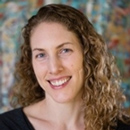
Katherine Amato
Assistant Professor, Department of Anthropology
Weinberg College of Arts and Sciences
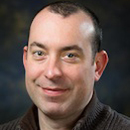
Erik Andersen
Assistant Professor, Department of Molecular Biosciences
Weinberg College of Arts and Sciences
The Andersen laboratory uses quantitative and molecular genetics to understand the polymorphisms that underlie multigenic traits of medical, ecological, and evolutionary importance.
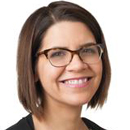
Michelle Birkett
Associate Professor, Medical Social Sciences
Director, CONNECT Research Program
Institute for Sexual and Gender Minority Health and Wellbeing
Feinberg School of Medicine
Professor Birkett's research seeks to understand the complex systemic drivers of health disparities within marginalized populations, in particular sexual and gender minorities. She leads several NIH-funded studies, including Network Canvas – an open source software which helps researchers capture social network data.

Sirus Bouchat
Assistant Professor, Department of Political Science
Weinberg College of Arts and Sciences
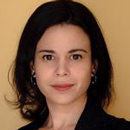
Rosemary Braun
Associate Professor, Molecular Biosciences
Associate Professor, Engineering Sciences and Applied Mathematics (courtesy)
Associate Professor, Physics and Astronomy (courtesy)
Weinberg College of Arts and Sciences
Professor Braun is a computational biologist with an interest in the development of methods for integrative, systems-level analysis of high-dimensional ("big") *omic data. These methods incorporate bioinformatic information with experimental data to characterize the networks of interactions that lead to the emergence of complex phenotypes, particularly cancers.
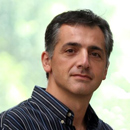
Fabián Bustamante
Professor of Computer Science, Department of Computer Science
McCormick School of Engineering and Applied Science
Professor Bustamante is interested in large-scale, longitudinal experimental research on computer networks and distributed systems.

Bruce Carruthers
John D. MacArthur Chair and Professor of Sociology
Director, Buffett Institute for Global Studies
Weinberg College of Arts and Sciences
Professor Carruthers' research interests include: comparative sociology; economy and society; the sociology of law; and the sociology of organizations.
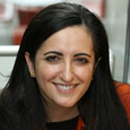
Jeannette Colyvas
Associate Professor, Human Development and Social Policy
Associate Professor, Learning Sciences
School of Education & Social Policy
Professor Colyvas' research interests include: organizations and entrepreneurship; institutions and networks; comparing public, private, and non-profit forms of organizing; university-industry interfaces; and public and private science.
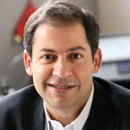
Noshir Contractor
Jane S. and William J. White Professor of Behavioral Sciences
Director, Science of Networks in Communities Research Group (SONIC)
School of Communication
Professor Contractor investigates factors that lead to the formation, maintenance, and dissolution of dynamically linked social and knowledge networks in a wide variety of contexts including communities of practice in business, translational science and engineering communities, public health networks and virtual worlds.
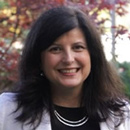
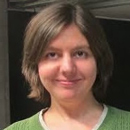
Michelle Driscoll
Assistant Professor, Dept of Physics and Astronomy
Weinberg College of Arts and Sciences
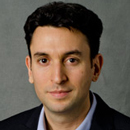
Professor Franconeri studies visual thinking and communication: how it works, and how we can make it work better. At his Visual Thinking Laboratory, a team of researchers explore how leveraging the visual system - the largest single system in your brain - can help people think, remember, and communicate more efficiently.
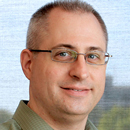
Randy Freeman
Professor of Electrical and Computer Engineering
McCormick School of Engineering and Applied Science
Professor Freeman's research interests include: nonlinear control theory; robust control, optimal control; nonlinear system theory; and control and estimation for multi-agent systems.
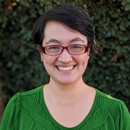
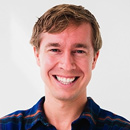
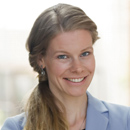
Ágnes Horvát
Associate Professor, Department of Communication Studies
School of Communications
NICO Post Doctoral Fellow, 2013-2015
Ágnes Horvát's research in human-centered computing and network science investigates how ubiquitous networks induce biased information production, sharing, and processing on AI-enabled, algorithmic platforms. By uncovering how online spaces operate, we strive to make them more efficient for scientists, entrepreneurs, and creative artists.
Professor Horvát heads the Lab on Innovation, Networks, and Knowledge (LINK).
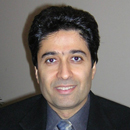
Seyed Iravani
Professor of Industrial Engineering and Management Sciences
McCormick School of Engineering and Applied Science
Professor Iravani's research interests include the applications of stochastic processes and queuing theory in the design and control of manufacturing, service operations and health care systems and supply chains.
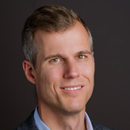
Benjamin Jones
Gordon and Llura Gund Family Professor of Entrepreneurship
Professor of Strategy
Kellogg School of Management
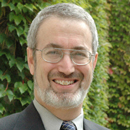
William Kath
Professor of Engineering Sciences and Applied Mathematics
McCormick School of Engineering and Applied Science
Professor Kath's research interests include: computational neuroscience, action potential propagation and dendritic integration in neurons; predictive modeling of cancer and epigenetic networks; optical fibers and waveguides, polarization mode dispersion, importance sampling and rare event simulation in lightwave systems, optical solitons, parametric optical amplifiers, linear and nonlinear wave propagation; and nonlinear dynamics, asymptotic and singular perturbation methods.
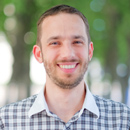
István Kovács
Assistant Professor
Department of Physics and Astronomy
Weinberg College of Arts and Sciences
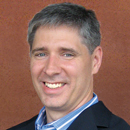
Kevin Lynch
Professor, Mechanical Engineering
McCormick School of Engineering and Applied Science
Robotics, mechanics, planning, and control of robotic manipulation; self-organized systems, particularly decentralized control of mobile sensor networks; motion planning and control for underactuated dynamic systems; physical human/robot interaction, industrial applications.
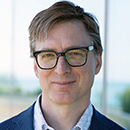
Malcolm MacIver
Professor of Mechanical Engineering, Professor of Neurobiology (by Courtesy)
McCormick School of Engineering and Applied Science
Professor MacIver believes that the body’s mechanical intelligence can be just as important, if not more important, than what’s going on in your head. His primary scientific efforts are in understanding how animal mechanics and sensory abilities fit together, and he pursues that problem using approaches from neuroscience, animal behavior studies, robotics, mathematical modeling, and computer simulations. In engineering, he has pioneered the development of a new sensor inspired by the ability of certain fish to sense using a self-generated electric field, and highly maneuverable propulsion systems based on fish locomotion.
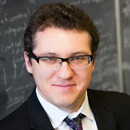
Adilson Motter
Charles E. and Emma H. Morrison Professor
Department of Physics and Astronomy
Weinberg College of Arts and Sciences
Professor Motter's research is focused on the dynamical behavior of complex systems and complex networks. In particular, in recent work Motter and his collaborators have established conditions for the synchronization of power grids and other complex networks, have developed the concept of synthetic rescue in network biology, have designed the first class of metamaterials that exhibit longitudinal negative compressibility, have developed methods for the control the nonlinear dynamics of complex networks, including cascade failures in distributed systems, and have investigated implications of these methods for the recovery of lost function in biological, ecological, and physical networks.
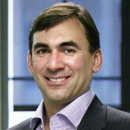
Milan Mrksich
Henry Wade Rogers Professor of Biomedical Engineering, Chemistry and Cell and Molecular Biology
McCormick School of Engineering and Applied Science
The Mrksich Group uses the tools of organic chemistry, materials science and biochemistry to develop new approaches to studying and controlling molecular function.
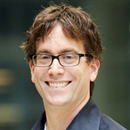
Todd Murphey
Associate Professor of Mechanical Engineering
McCormick School of Engineering and Applied Science
Professor Murphey's research focuses on computational methods in dynamics and control. The group focuses on computational models of embedded control, biomechanical simulation, dynamic exploration, and hybrid control. Much of the work uses structured integration (numerical techniques specifically suited to mechanical systems) to ensure stability and robustness of the numerical technique.
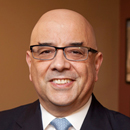
Julio Ottino
Dean of the McCormick School of Engineering and Applied Science
Distinguished Robert R. McCormick Institute Professor Walter P. Murphy Professor of Chemical and Biological Engineering
Dean Ottino’s experimental and theoretical work unveiled the connection between chaos and mixing of fluids and opened multiple connections.
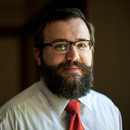
Andrew V. Papachristos
Professor of Sociology
Director, Northwestern Network and Neighborhood Initiative
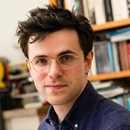
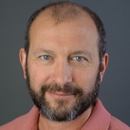
Igal Szleifer
Christina Enroth-Cugell Professor of Biomedical Engineering
McCormick School of Engineering and Applied Science
Professor Szleifer's work is aimed at the fundamental understanding of the properties of complex molecular systems that encompass problems at the interface between medicine, biology, chemistry, physics and materials science.
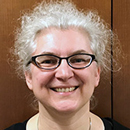
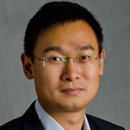
Dashun Wang
Kellogg Chair of Technology
Professor of Management & Organizations
Kellogg School of Management
Professor Wang current research focus is on Science of Science, a quest to turn the scientific methods and curiosities upon ourselves, hoping to use and develop tools from complexity sciences and artificial intelligence to broadly explore the opportunities for innovation and promises of prosperity offered by the recent data explosion in science. At Kellogg, he is a Co-Director of the Ryan Institute on Complexity, and the Director of the Center for Science of Science and Innovation (CSSI).
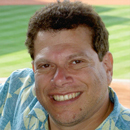
Uri Wilensky
Lorraine H. Morton Professor of Learning Sciences and Computer Science
School of Education and Social Policy
McCormick School of Engineering
Phone: 847-467-7593
emailUri Wilensky is a mathematician, educator, learning technologist and computer scientist. He is involved in designing, deploying and researching learning technologies, especially for mathematics and science education. Much of his work of late has focused on the design of computer-based modeling and simulation languages, including networked collaborative simulations. He is very interested in the changing content of curriculum in the context of ubiquitous computation. A particular interest is in complexity and systems thinking.
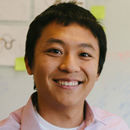
Haoqi Zhang
Associate Professor of Computer Science
McCormick School of Engineering
Director, DTR; Co-Director, DELTA LAB

